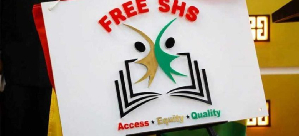Deputy Minister of Gender, Children and Social Protection, Gifty Twum Ampofo, has said the Livelihood Empowerment Against Poverty (LEAP) programme, is currently covering 456,000 beneficiary households (which translates into about 1.7 million individuals) nationwide.
The intervention provides conditional and unconditional cash grants to extremely poor and vulnerable households in Ghana.
Also, 2,174,000 pupils in 6,213 public basic schools nationwide, currently benefit from the Ghana School Feeding Programme, according to her, while 13,816 prison inmates nationwide, have been rolled onto the National Health Insurance Scheme (NHIS).
The Abuakwa North MP announced the figures when her ministry held a one-day training workshop for some faith-based organisations (FBOs) and traditional leaders in the Northern Region on social protection policies.
Participants were educated on how to develop strategies to track, monitor and report on social interventions within their remit.
The authorities, according to Twum Ampofo, is to help “mainstream social protection into the activities and policies of the faith-based organisations and traditional authorities”.
She explained that globally, social protection has proven to be a reliable tool for addressing poverty, vulnerability and exclusion, which Ghana has also adopted.
She, therefore, commended the FBOs and traditional leaders for providing support to the vulnerable in their communities.
"It is imperative that these social protection efforts are properly documented and mainstreamed into your religious policies and practices to stimulate the needed support for the vulnerable and excluded in your respective churches, mosques and traditional settings, and also transcend social protection delivery to the grassroots", she said.
Apart from LEAP, NHIS and the School Feeding programme, she said the government is implementing other social intervention programmes such as Capitation Grant, Planting for Food & Jobs; Free Senior High School, among others, as part of measures to combat poverty and improve the living conditions of the marginalised in society.
General News of Saturday, 22 September 2018
Source: classfmonline.com
LEAP saving 1.7m poor people – Deputy Minister
Entertainment
















